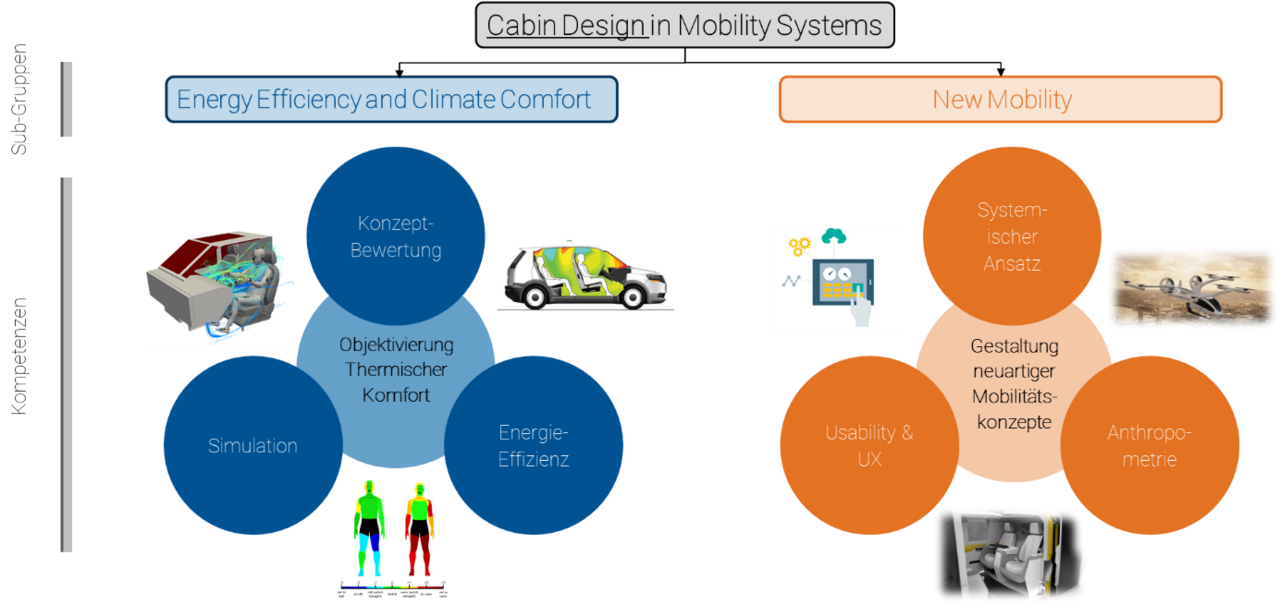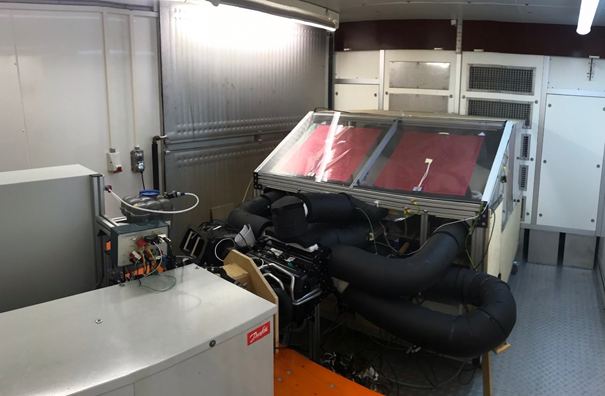Cabin Design
| Group Lead: | Manuel Kipp und Dominik Janetzko |
Cabin Design in Mobility Systems
The Cabin Design research group is concerned with the anthropometrically, ergonomically and climatically optimized design of vehicle and aircraft cabins. The aim is to design central components of the cabin in a user-centered manner so as to ensure that the user's stay and (continuous) work is as fatigue-free, comfortable and climatically pleasant as possible. To this end, methods from the user-centered design process and experimental approaches are being pursued. A side effect of the climatic optimization of the cabin is an increase in the energy efficiency of the vehicle or aircraft, which in addition to the gain in comfort also enables an increase in range.
With the emergence of new types of (individual and multi-passenger) mobility concepts in the form of e-shuttles, micro vehicles and urban air mobility, the question of how passengers and operators can be transported as safely and comfortably as possible is arising nowadays more than ever. Various aspects have to be taken into account here: as the core subject of ergonomics, the anthropometrically optimized design of the cabin plays a central role. Topics such as sitting posture, accessibility and concealment must be considered. In addition, the cabin concept must also be optimized from a thermal point of view in order to ensure passenger comfort and at the same time increase the range of the mostly electrically powered mobility systems. From a cognitive-ergonomic perspective, the placement of the various components of the human-machine interface (HMI) such as display or control elements is analyzed and designed.
Thermal comfort is a key design parameter that determines the acceptance and satisfaction of new concepts. Comfort assessments also provide the basis for energy considerations. Compared to established approaches, new air conditioning concepts for vehicles in rooms must ensure thermal comfort while significantly reducing energy consumption for heating and cooling. For a holistic view of development, analysis and evaluation of new concepts, the modeling of climate comfort is a major task of the research topic Energy Efficiency and Climate Comfort. The goal is ergonomic climate control and reduction of energy demand for heating and cooling.

